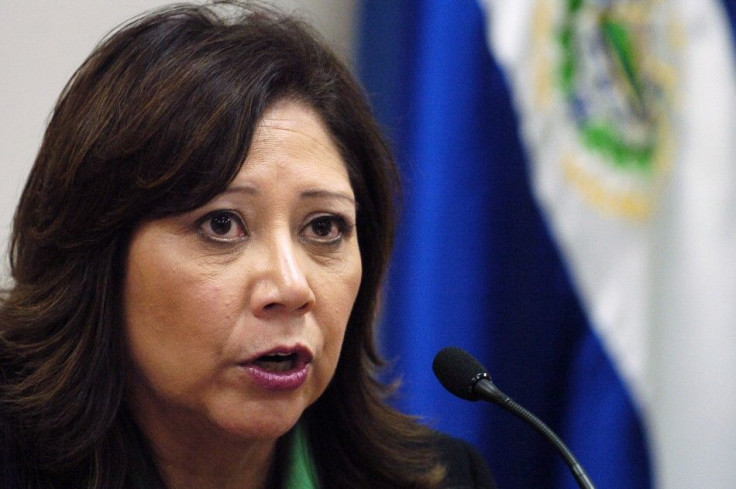Facebook and Labor Department Announce Partnership to Help the Unemployed

The Obama administration and Facebook announced a new partnership on Thursday that is designed to help unemployed Americans find jobs through social media.
The keystone of the initiative is a Facebook page for the Social Jobs Partnership. That page will aggregate the employment resources provided by several participating organizations, including the National Association of Colleges and Employers, the National Association of State Workforce Agencies and the Direct Employers Association.
The Facebook page is intended as a one-stop shop for people looking for jobs, Marne Levine, Facebook's vice president of global public policy, said at a press conference announcing the partnership. It's a free online job fair that can be accessed seven days a week, day or night, and connects you to resources offered by the Department of Labor and our partner nonprofits. The end result is going to be this: more job seekers are connected to more job resources.
Facebook users will be directed to four Department of Labor resources: the My Skills, My Future portal, which helps laid-off workers find new jobs based on the skills they already have; the My Next Move portal, which does the same for new employees, like recent college graduates or people without post-secondary education; the Web site onestop.org, which lists more than 3,000 local career centers that can help people with their résumés and interview skills; and the Job Corps program for people aged 16 to 24.
In addition to the dedicated partnership page, Facebook will run public service announcements in the 10 states where unemployment is highest, plus Puerto Rico, and distribute informational materials to would-be employees and employers alike.
Socia Media - Job Postings' Frontier
The resources offered will be fine-tuned based on the results of surveys about how job seekers, college career centers and workforce recruiters are using the social Web, Levine said. Our labor market is changing, and so should the tools used to find these jobs.
But the initiative is less about developing new tools and more about publicizing existing tools and making them more widely available.
Our resources are only as good as when people use them, Labor Secretary Hilda Solis said. Through Facebook, we can get to 132 million people. Oh my God, that is incredible, and I know it's going to keep growing.
3 Million Jobs Open
When it comes to reducing unemployment, most political attention has focused on creating new jobs -- but right now, there are three million jobs that are open but can't be filled because applicants don't have the right skills, and the people who do have those skills aren't finding the listings. In fact, Levine cited a McKinsey study that found that 50 percent of companies had been unable to fill some open positions within six months.
There's a gap we can't seem to close. There are great people out there who are looking for jobs and great employers who can't find the right talent, Levine said. At Facebook, we are in the business of connecting.
She gave the example of a San Diego resident named Noah Saltman who had experience working with solar energy and found a job with Altech Solar through the company's Facebook page. He used Facebook to get a feel for the company before he walked through the door, she said. He said, 'Facebook allowed me to interview them before they even interviewed me.'
The Goal: Link More Job Seekers to Jobs
By educating both workers and employers, the organizers said they hoped the partnership would both make prospective employees more qualified and make employers more open to hiring people who have been unemployed for a long time. Many companies are loath to do that, because they think long-term unemployment reflects poorly on a candidate, and some recruiters won't even look at an application from anyone who has been unemployed for more than six months.
We need to educate employers that just because a person isn't working, doesn't mean they don't have skills, Bonnie Elsey, the president of the National Association of State Workforce Agencies, said. We need to teach people how to research, how to learn, how to prepare themselves, because most likely, it will not be the last time they lose their job -- and employers need to understand that kind of churning that occurs in the market.
Members of the partnership said the initiative was a natural outgrowth of a society in which there is almost nothing the Internet does not touch.
Web, Social Media Intrinsic to Today's Job Search Process
Today's generation of college students never knew a world without the connections and access offered by the Web, Marilyn Mackes, the executive director of the National Association of Colleges and Employers, said at the press conference.
Mackes cited statistics that 90 percent of college students in the class of 2011 had Facebook pages, as did 80 percent of campus career centers. Career advisers must now address the subject of how job seekers can best leverage social media, she said.
Elsey said the partnership illustrates the public sector's ability to innovate and respond to the marketplace and embrace social media, and Solis agreed.
There is a longstanding stigma that the government doesn't know how to do customer service, Solis said. This innovative partnership shows otherwise. It is a commitment to customer service on the most important issue of our time.
© Copyright IBTimes 2024. All rights reserved.











